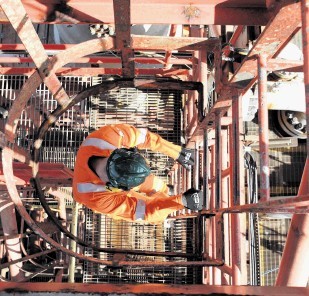
NSRI (National Subsea Research Initiative) is leading computer industry-style hackathons that it hopes will lead to ideas that can help unlock up to 1.5 billion barrels of oil from the North Sea.
A recent study revealed that 210 small pools of hydrocarbons are currently unable to be exploited economically.
NSRI is running a series of the workshop events – known as hackathons – to brain-storm new approaches to tackling these hard to reach reserves.
Used successfully in computer programming globally, hackathons are workshop type events which bring relevant parties together to collaborate intensively on solving a problem.
The hackathons will be held in Aberdeen and Surrey next month and bring together industry, technology developers, universities and research institutes to consider the possible technological solutions that will allow these small pools to be exploited economically.
Dr Gordon Drummond, project director of NSRI, who spoke exclusively to Energy Voice as NSRI marked its 12 months since its launch, said: “This represents around 5% of UK reserves or 20% of future UK production.
“If we can unlock these fields, then there is an enormous economic prize for the UK.
“NSRI has been tasked with helping to find the new, disruptive subsea technologies that could help unlock these small discoveries and help prolong the life of the North Sea.”
Three real oilfield development scenarios will be under the spotlight at these hackathons.
Following a presentation by the licence holders for these fields, the participants will break into work groups to discuss potential solutions under these themes: Process & Chemistry; Subsea Production Systems; Subsea, Umbilical, Risers & Flowlines; Surface Facilities & Modifications; Operating & Production.
Dr Drummond added: “These hackathons will help us to identify the challenges associated with unlocking small discoveries, debate how they could be addressed and the technology required to shift them from marginal to economical.”
All ideas generated at the events will be captured and screened to prioritise the efforts in the short, medium and long term, with cost reduction and efficiency measures addressed first. New technology will be qualified and risk assessed prior to being deployed for field trials.
“There must be a willingness to work more collaboratively on multi-field applications and on access to infrastructure to explore and speed up the development of near to market technologies which will achieve efficiencies and extend the life of the UKCS,” warned Mr Drummond.
Dr Angela Seeney, director of technology, supply chain and decommissioning at the Oil and Gas Authority said: “This is exactly the kind of collaboration and innovation that the UKCS requires if we are to really maximise economic recovery.
“The Technology Leadership Board, which I co-chair, brings together industry and technical experts, and we look forward to actively promoting this work which has the potential to deliver and unlock significant additional reserves,”
The Hackathon workshops will be held in Surrey on November 3rd and in Aberdeen on November 10th. Spaces are limited and anyone wishing to be considered as a participant should register interest at info@nsri.co.uk
